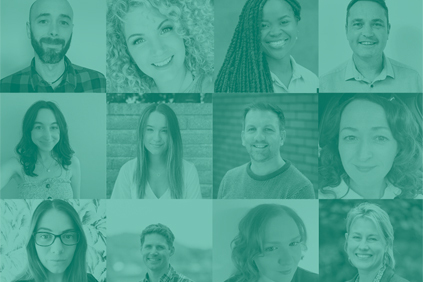In November, we hosted an accessibility event in partnership with the Digital Transformation Innovation Institute (DTII) team at Cardiff University.
This event brought together over 50 people from across the Welsh public sector to discuss the accessibility and inclusivity of public services, and an opportunity to consider how, as a community, we improve things to make things better for the people living, working and visiting Wales.
I was thrilled to kick off the day with a session, sharing insights from recent research we have completed. It’s been a fascinating journey, and I want to share some key insights and reflections from the conference and our work.
What we’ve learned
We looked at accessibility across Welsh public sector organisations, and while there’s a lot of goodwill, there’s still a long way to go. Here are some of my personal reflections and things that stood out to me:
1. Understanding Wales’ accessibility landscape
The day began with an open discussion about Wales’ current performance in ensuring accessible public services. From the challenges of implementing legislation to the broader ambition of inclusivity, attendees explored where Wales stands today and where it aspires to be.
As we delved deeper, we were fortunate to have Jonathan Lazar, a global thought leader on accessibility, share insights on the "Born Accessible" model. This model emphasises designing technologies and services that are inherently inclusive from the outset, not as an afterthought. His work has influenced practices in the United States and internationally, providing inspiration for how Wales can adopt and adapt similar principles.
2. Real stories, real impact
One of the most powerful moments of the conference was hearing from individuals with lived experiences. These personal stories underscored a vital point: accessibility isn’t a box to tick or a compliance measure to fulfill. It’s about improving real lives - making it easier for people who live, work, or visit Wales to engage fully with public services.
Participants shared candid insights about the barriers faced by people with disabilities, and these stories sparked rich, interactive discussions. They reminded us that accessibility is not just a moral imperative but an opportunity to enhance quality of life across the board.
3. Rules without consequences
There’s no clear enforcement for accessibility in Wales. Without accountability and increasing pressures on delivering public services, accessibility is lower on the priority list for most teams. This is a significant gap which needs to be addressed.
4. Who’s responsible?
A big issue we’ve seen is that accessibility responsibilities are often unclear. Sometimes it’s a web team taking it on, or it falls to someone who’s passionate about the topic. But relying on passion isn’t enough - we need better structures and accountability.
5. Skills are lacking
Accessibility knowledge is still pretty patchy. Most organisations rely heavily on third-party suppliers, but even then, not all suppliers are delivering fully accessible solutions. Without the right skills in-house, teams often struggle to identify and fix issues.
6. A culture shift is needed
Here’s the tough one: accessibility isn’t getting the attention it deserves at the leadership level. When it’s not a priority at the top, it’s hard to get buy-in and commitment from the rest of the team.
Opportunities to do better
Despite these challenges, I’m optimistic. There are so many opportunities to improve, and I know we can do it if we work together. Here’s where I think we can make the biggest impact:
Upskill our leaders and our teams
We need to invest in training and guidance, so teams feel confident tackling accessibility. With the right support, we can reduce our reliance on external suppliers and take more ownership of this vital work.
Make inclusive design the default
Accessibility shouldn’t be an afterthought. By embracing user-centered, inclusive design from the start, we can create services that are better for everyone - not just those with access needs.
Keep the community moving forward
This event was the start of something truly exciting. The passion and drive from this event is something that would be great to build on and keep the momentum going.
My vision for Wales
When I think about what’s possible, I’m excited. I feel inspired.
Imagine a Wales where everyone can seamlessly access the services they need. That’s the future we’re building toward, but we need commitment, collaboration, and a cultural shift to get there.
Accessibility isn’t a side project or a “nice-to-have.” It’s the foundation of great public services. Let’s make it happen!
What’s next?
Show and Tell: Understanding the accessibility challenges within Welsh public services, 15 January, 2pm
Join us for an online show and tell, where we’ll share the findings from our recent accessibility discovery project.
Webinar: Disability, language, and design with Content Design London, 21 January, 10am
How can you make your services and content more inclusive? In this one-hour webinar, Jack Garfinkel, Content Designer, Content Design London, will explore the social model of disability and how it can help you create better, more inclusive products and services. Sign up.
Dolenni Digidol: Leadership for accessible and inclusive public services, 29 January, 5pm
The Centre for Digital Public Services (CDPS) are hosting an evening panel event at Da Coffi, Cardiff, for senior public sector leaders to explore the critical topic of digital accessibility and its impact on public services in Wales. Spaces are limited, register now!
